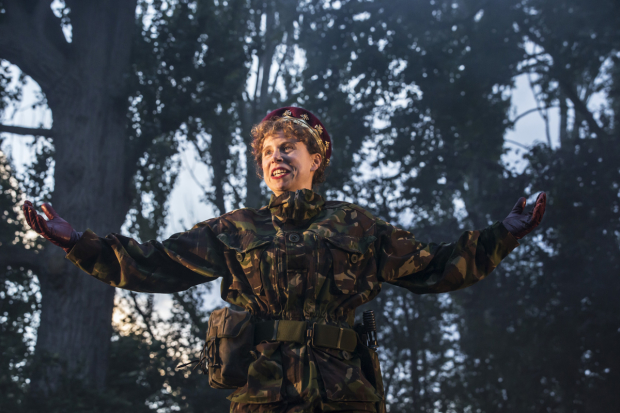Why aren't more women centre stage?
In a week where a woman failed to become President, Sarah Crompton reflects on the vicious circle of women being overlooked on stage

© Johan Persson
Here are some blunt statistics. Last year, actresses made up 39 per cent of the casting on our stages, women directors were responsible for just 36 per cent of the productions, and women writers for 28 per cent of the plays, according to the Sphinx Theatre Company. This is marginally better than in 1983 when of 1024 productions surveyed only 11 per cent were written by women (mainly a single woman called Agatha Christie) and 2006 when only nine per cent had a female brain behind them. But it is still quite a long way from gender equality.
That’s part of the reason why Sphinx is organising the second Women Taking Centre Stage Festival at the Hampstead Theatre on November 20. As their artistic director Sue Parrish points out: "Women still find it hard to hold that central space in the culture."
We don’t find women on stage believable when they talk about power, business, politics, philosophy and society
There are workshops and debates on how to improve matters. I am chairing one with playwright Timberlake Wertenbaker, Suzanne Bell, the new writing associate at the Royal Exchange Theatre in Manchester and Elizabeth Newman, artistic director of Bolton’s Octagon Theatre in which we will attempt to suggest some very practical ways forward.
But most importantly of all this is a celebration of the writing and acting of women, with performers such as Janet Suzman, Josette Simon, Ann Mitchell, Maggie Steed, Cecilia Noble and Kathryn Pogson in works by April de Angelis, Winsome Pinnock and Tanika Gupta. The day culminates in the performances of plays written, rehearsed and performed in 24 hours by writers including Rebecca Lenkiewicz, Howard Brenton, and Vinay Patel.
What pleases Sue Parrish about the whole day is that none of the plays are particularly about what might be called women’s issues; instead they simply and assertively tell the stories of real women, allowing women’s voices be raised on a wide range of subjects. The normalisation of simply having a huge number of women on stage is the aim, she says.
The moment we stop noticing that women are taking centre stage is the moment we have succeeded
Obviously there are many encouraging moves in this direction. Robert Hastie‘s decision to open his first season in charge of Sheffield Theatres with a Julius Caesar that is cast equally with men and women, for example, builds on his Henry V in Regent’s Park which starred Michelle Terry as the king. The Donmar’s Shakespeare season which hands three plays entirely to women is part of the same trend. And in the next few weeks, the Almeida (with Mary Stuart), the National (with Hedda Gabler) and the Donmar with Saint Joan are all staging classic dramas that put the spotlight firmly on women’s experience. The Old Vic follows Glenda Jackson as Lear with Art by Yasmina Reza. There are many more hopeful straws in the wind.
But Parrish is right when she says that it is the moment we stop noticing that women are taking centre stage that women will have succeeded. It’s when it becomes ordinary that diversity and equality have been achieved. She notes that she has talked to playwrights who say that they started making their leading character a woman, and then turned her into a man because it seemed incredible that a woman should have been in the position of power the text was describing.
There’s a vicious circle at work here. If we don’t find women on stage believable when they talk about power, business, politics, philosophy and society, if we see them mainly in the context of family and love, then theatre perpetuates the image of women that society then absorbs. In a week where a woman failed to become President of the United States in part at least because so many voters (including women) didn’t believe a woman could or should hold that office, the cultural image women project becomes incredibly urgent. The circle must be broken.
For more information and booking for Women Centre Stage head to www.womencentrestage.co.uk












